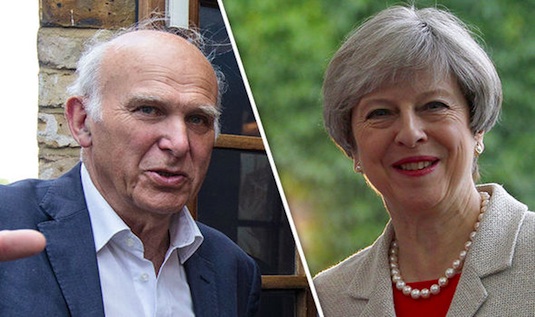
As we have seen, setting Brexit aside, the forecast that May would try enacting the least controversial moments of her manifesto is proving correct. When you look into the abyss, they say the abyss looks into you, and that can wonderfully concentrate the mind. To avoid outright doom, May has the impossible task of re-detoxifying her party while swimming the radioactive waters of Brexit. Therefore avoiding the punitive, disastrous policies of which the Tories are fond are a priority. Or, at least, should be. The chancellor for one hasn't got the message from increasingly vocal ministers as he sticks by the public sector pay freeze, a bit of fiscal restraint not to have applied to him and other Honourable Members these last couple of years. And so, while May has traded in strong and stable for meek and mild, the Tories have public spats over a key plank of their policy platform rendering the one strategy capable of salvaging something redundant. Long may it continue.
Returning to the matter to hand, there are two very good reasons why the LibDems are most unlikely to countenance anything other than episodic support:
1. The Membership. The promised revival did not materialise, but as a party and despite their below par election performance they're in good shape. At over 100,000 members it is not beyond the realm of possibility that they've knocked the Tories into fourth place, now coming behind Labour and the SNP. If an opportunity opens up, say a by-election in a LibDem/Tory marginal they have the bodies to throw at it. Richmond before Christmas shows this is possible. However, this growth in members was an outcome of remainia, the liberal version of stop-the-world-we-want-to-get-off. The party itself is committed to following through with Brexit, albeit with the caveat of an additional referendum on whatever deal is hammered out with the Commission. A formal lash up along 2010 coalition lines or a looser arrangement as per the DUP risks throwing away their Brexit dividend.
2. The voters. The LibDems are languishing in the polls, albeit back as the major of the minor parties. The question, their permanent question, is how to build up their strength again. Slippery opportunist he is, nevertheless Tim Farron, notwithstanding the 'I love gays, not just in a gay way' furore, is considered on the left of his party. He was able to ascend the lofty heights by sidestepping ministerial briefs in the coalition years and carving out a profile via the party presidency as the loyal internal opposition. Naturally, given the state the Labour Party was in from the period of Jeremy Corbyn winning the leadership to the eve of the general election campaign, he thought we were easy pickings. Unfortunately for them, they didn't even bother consulting the lessons of their 2015 massacre. Yes, plenty of LibDem voters switched to Labour but large numbers also went for the Tories too, particularly in their former redoubts in the South West. And again this time, Farron saw his majority almost completely wiped out by the Tories in Westmorland. Being, what, as @CatherineBuca calls them, Single Issue Brexit Bores (SIBBs) and making it the central plank of their election left them vulnerable vis a vis leave-minded Tory voters and naked with regard to social justice-minded Labour voters. Trying to copy Ruth Davidson's 'I want to be the effective opposition' schtick fell on stony ground because that swam against the anti-Tory stream. What they did was triangulate a bad result, despite picking up a net gain of four. A renewed deal would, therefore, lock them into this position of irrelevance. If they want to emerge from this they might want to start eyeing up soft Tory voters sticking with them because of Corbyn-is-a-Marxist nonsense, but it is only going to work if they keep the government at the end of a very long barge pole.
The LibDems must also be careful about what issues they decide to support the Tories on. In recent days Uncle Vince has popped into the studios to defend tuition fees, though not as far as some idiots who think they're "progressive". I digress. If a coronation proceeds, which is looking likely, then who knows what foolishness he may inflict on the party. The LibDems lining up to defend tuition fees with the Tories would be a proper killer. Or for that matter seeking to defend anything regressive that Labour tries overturning through Opposition Days or Private Members' Bills.
In all, the yellow party is in a pickle and cutting a deal with the Tories should surely keep them there. But backing them case-by-case is risky too, especially when they would do well to worry the government's flanks than act, for a second time, as their meat shield.
1 comment:
Collaborate on an issue-by-issue basis?
A bit like Comrade Corbyn does over Brexshit? :)
Post a Comment